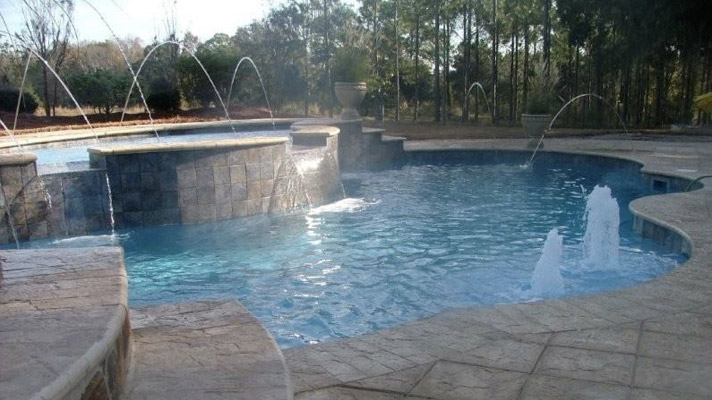Imperial Pools contractors answer fiberglass pool questions
When you’re going to have a swimming pool constructed you will need to decide whether you want a vinyl liner pool, a concrete aka gunite pool, or a fiberglass pool. The swimming pool contractors from Imperial Pools in Decatur, Illinois say there are myriad benefits and drawbacks to each type of pool building material and you need to research all of the pros and cons of each before you decide which is best for your family.
Everything you need to know about fiberglass pools
- You may have heard that fiberglass pools “float.” A fiberglass pool shell will not float nor will it be in danger of moving out of its excavated area once the construction is finished. A fiberglass pool installed by a pool professional is there to stay. You need to always keep the pool full of water or there is the potential that it could shift.

- Fiberglass pools can be as large as 16 feet wide by 40 feet long and come in myriad shapes. Some of the restrictions in size are because of the maximum widths that are allowed on the roads to deliver the pool.
- The price of a fiberglass pool is not a one size fits all. The size of the pool, the difficulty or ease in excavating the area, the accessories, the pool equipment you choose and other items impact the price of the fiberglass pool. Talk with us to uncover the price for the unique pool you’re seeking.
- Fiberglass pools can withstand temperature fluctuations and will flex and move with the environment.
- A fiberglass pool can be installed in as little as two to four weeks.
- Fiberglass pools use fewer chemicals to keep clean. They are also not prone to algae growth and require less maintenance than other materials.
This is a brief primer on fiberglass swimming pools. If you have decided that a fiberglass pool is what you and your family would like, contract us for more information and to get the project started.

